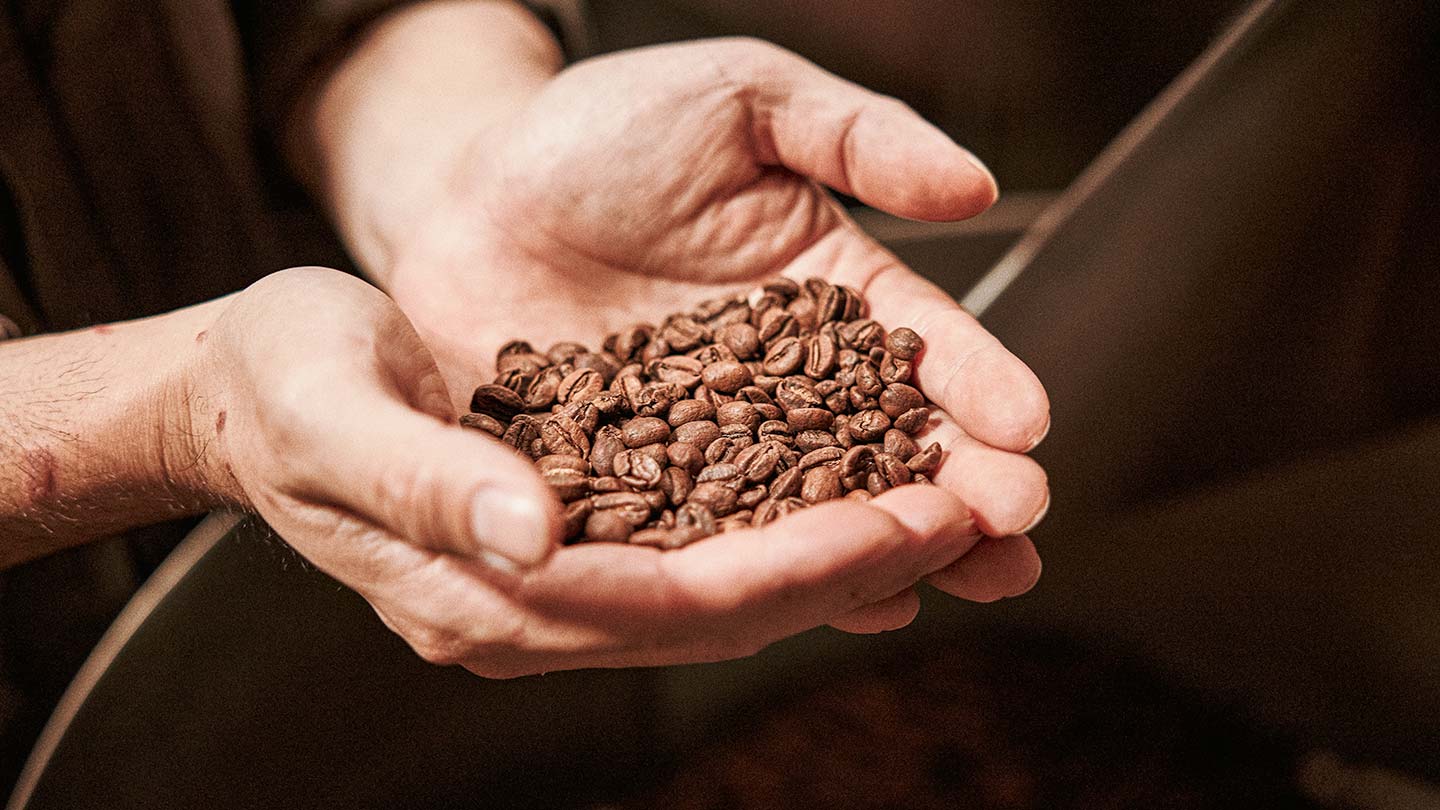
【Special Edition】Life begins after coffee
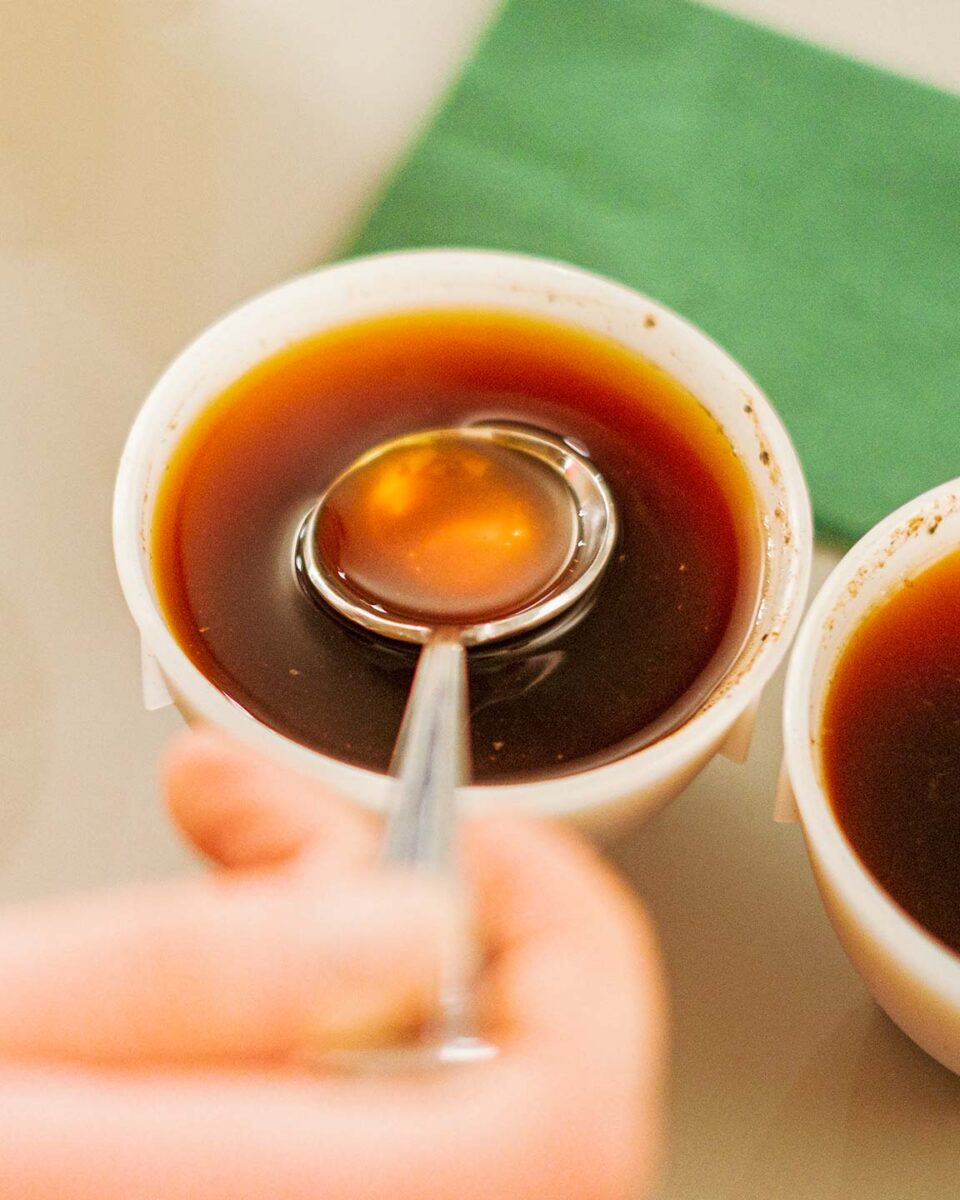
We often lump roasters and baristas together based on their professions, but each person has their own unique personality. These differences become clearer when we dig deep into their individual motivations, sources of fulfillment, and what they hope for in the future.
There are those who are captivated by the artistic potential of coffee, those who are inspired by the endless possibilities of the craft, those who see the potential of a coffee shop as a third place, those who want to address the challenges facing the industry and make a positive impact, those who want to create a sustainable and ethical business, those who want to innovate and shake up the industry, and those who want to root themselves in their community and uplift it… Each person views the world through their own lens and acts with their own attitude, showcasing the diverse and inclusive world of coffee.
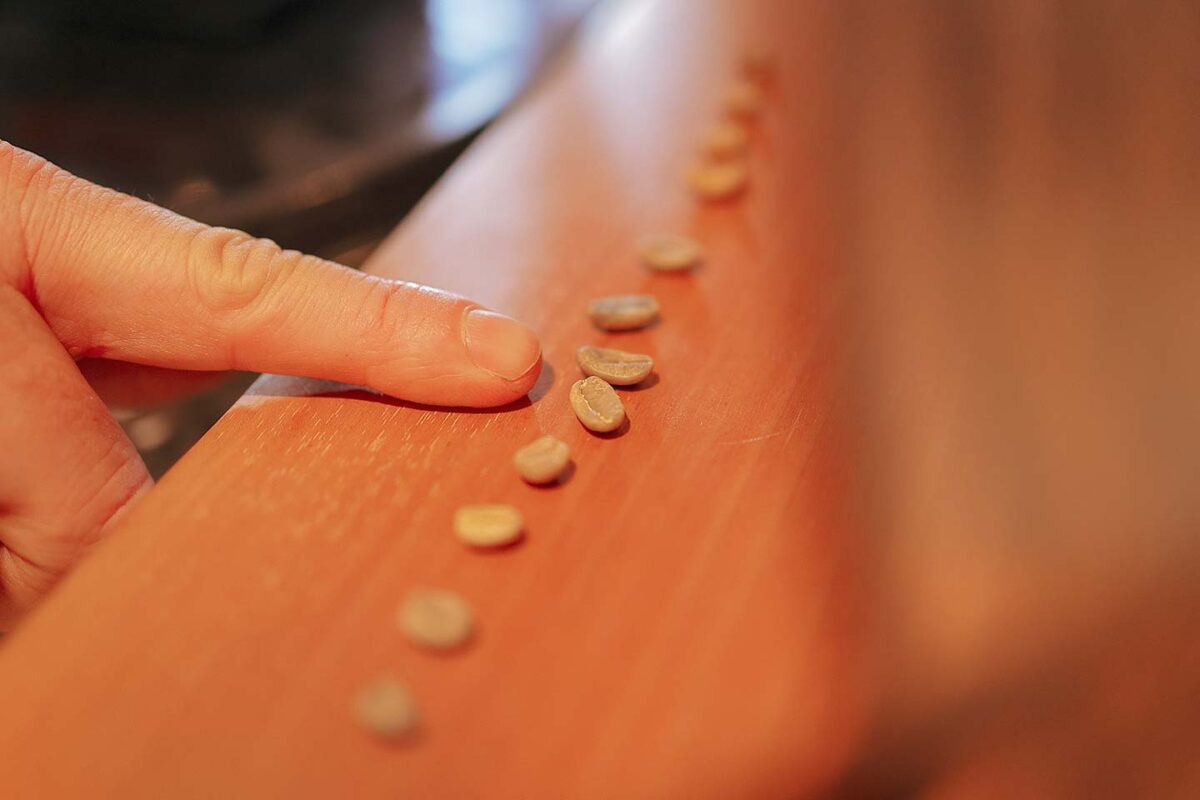
In our Meet the Roasters series, we have featured unique roasters from more than 10 countries and delved into the one-of-a-kind stories that make them stand out. Their words may not be quotable phrases or worthy of being displayed on a plaque, but they do offer deep and valuable insights.
These words serve as a guiding light when we feel lost, a gust of fresh air that opens up new possibilities, or a key that unlocks the passion we had when we first started out. They transcend all kinds of barriers – nationality, language, religion, and culture – and resonate with universal truths about life. For this special New Year’s edition, we’ve collected excerpts from interviews with 25 roasters. We hope you enjoy this treasure trove of diversity.
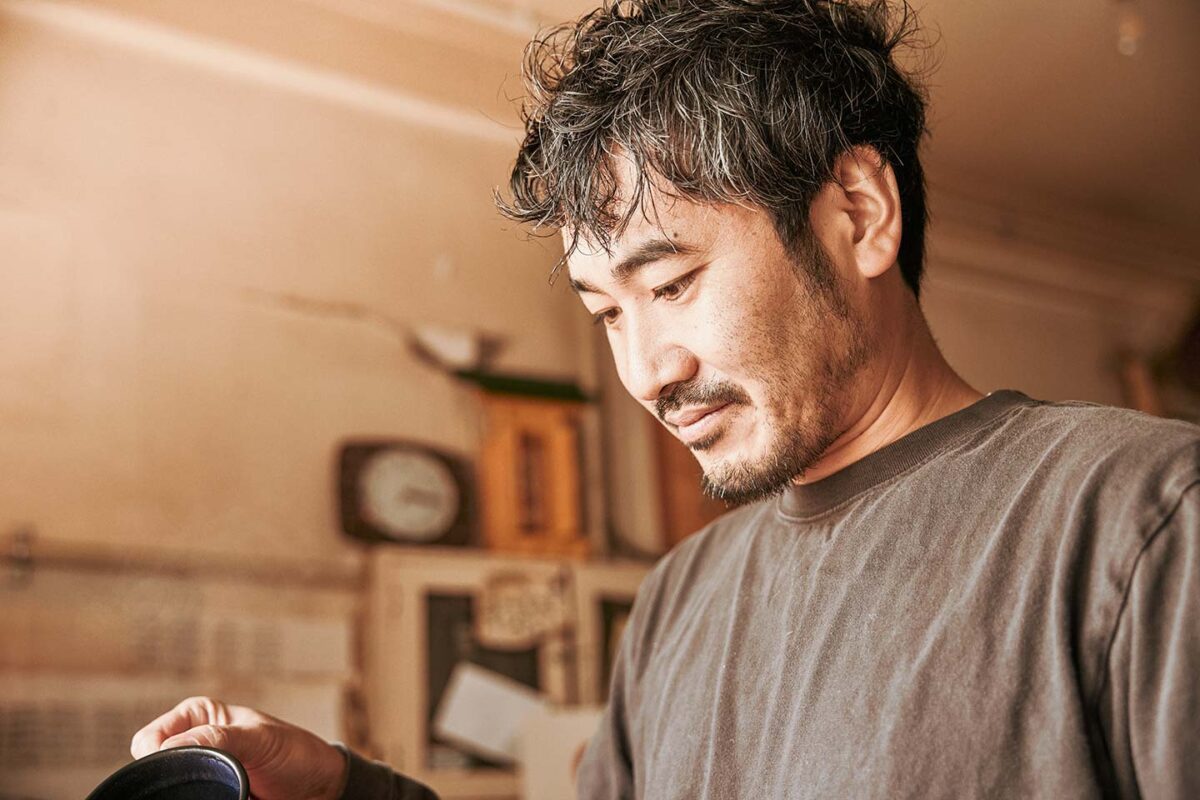
K COFFEE/Kazuya Mori/Japan
I basically think all I need to do is just serve coffee that I think is delicious. Having fun matters more to me than following theory. Once, I got caught up in a chat with a customer and accidentally left East Timorese coffee in the heated roaster. But it turned out to be quite nice. So I sold it under the name ‘Over-roasted Timor’. Some customers actually liked it better.
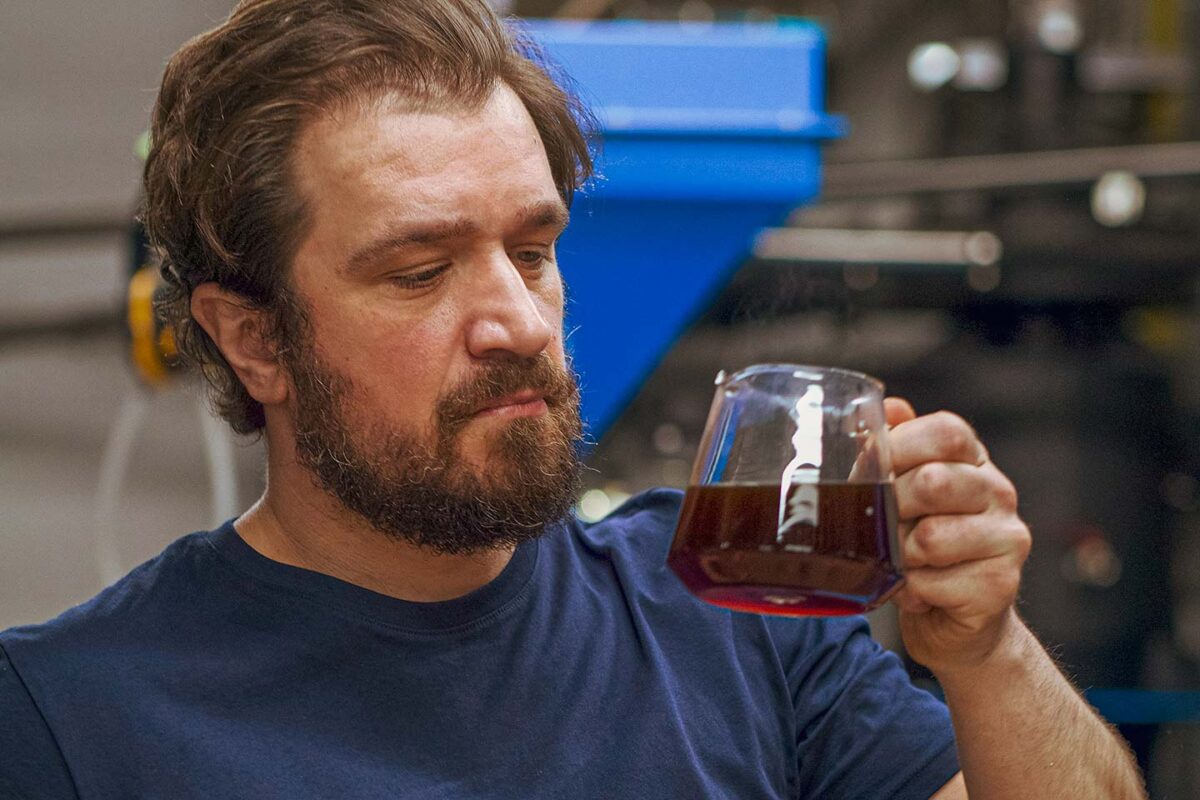
Bell Lane Coffee/Niko Sunko/Ireland
I decided to become a person who shares knowledge and information with others, whether they are my competitors or not. I believe that doing so is for the benefit of producers, roasters and the industry as a whole. When we have conversations and share information, that can open new doors. I want to share goodness and create a large community of positive vibes. That’s what we should be ‘wasting’ our energy on.
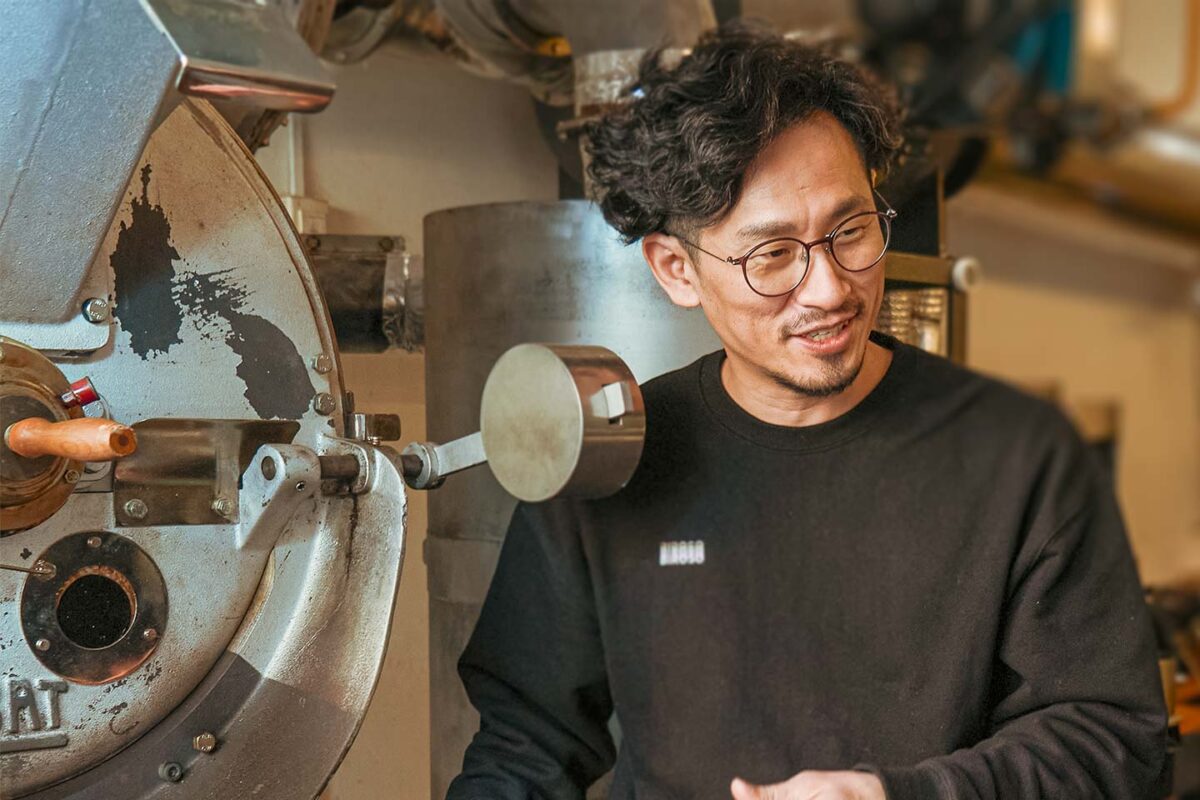
Biroso Coffee/Kim Lio/South Korea
I saw children trudging up and down steep, dusty hills, carrying coffee cherries. To outsiders, this scene may come across as something to be lamented, children being forced to work, isolated from civilization. But in fact, these children were all smiles, living their lives with tremendous joy. At least I thought so. That’s when it hit me that real happiness is not about earning money or power, but it’s about satisfying what your heart wants.
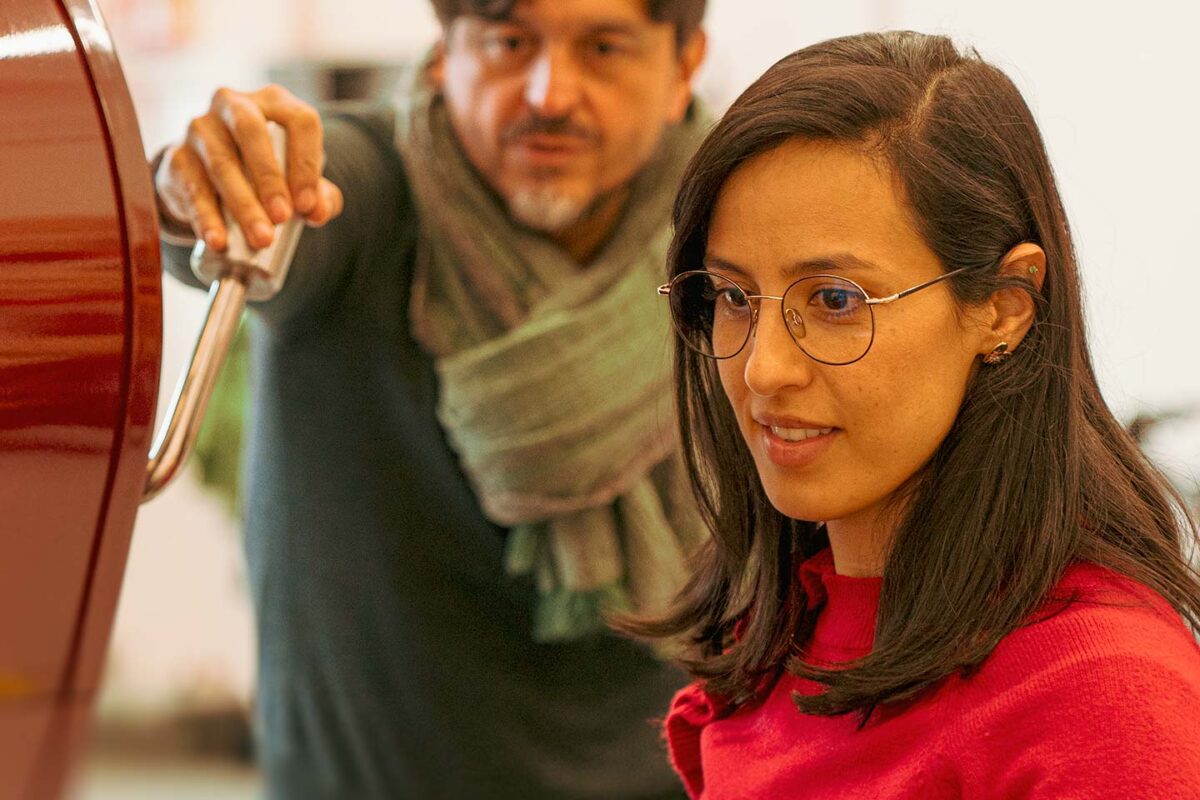
The Beans on Fire/Maria Hernandez/France
Jazz musicians always try to create something new, instead of playing a fixed melody. All of them are highly skilled, and they listen to each other’s performance while putting together their own sound. This approach in jazz has something in common with coffee. There is the producer who grows green coffee, then the exporter, and also the roaster and the barista. Each one of them has to listen to each other’s work and fulfill their part to make a delicious cup of coffee.
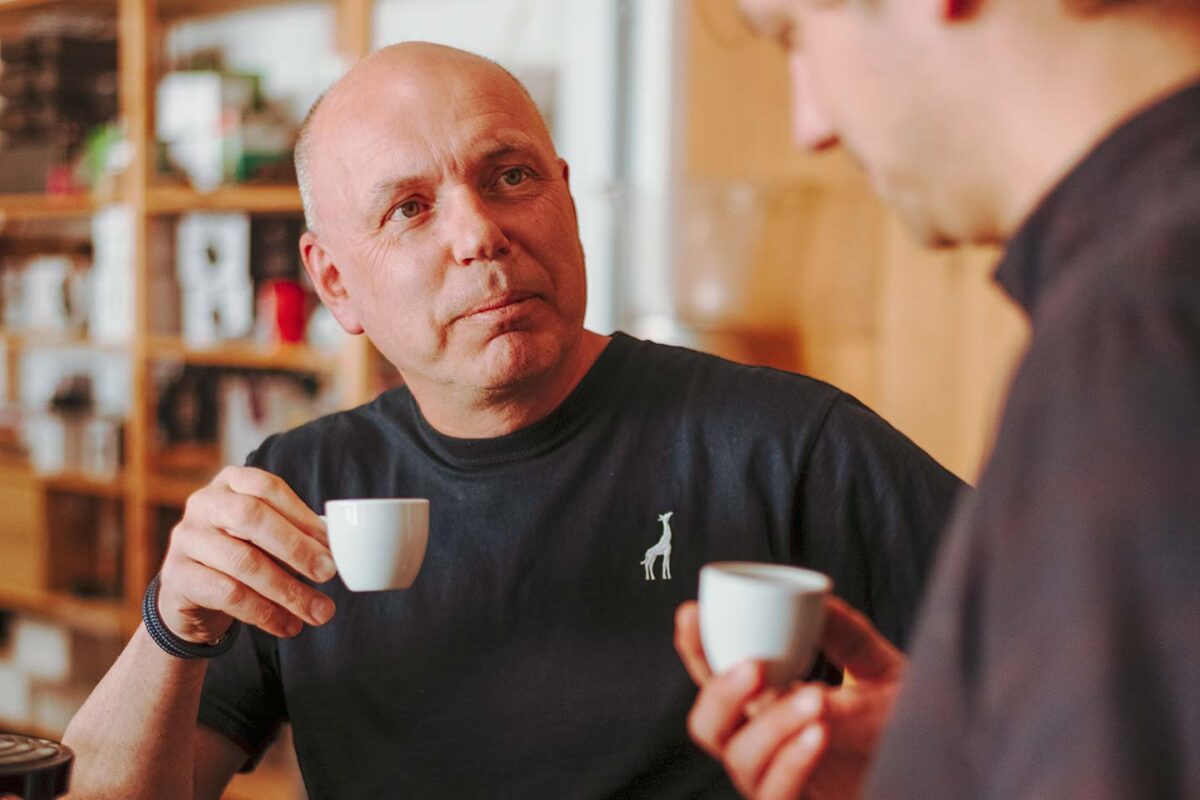
Giraffe Coffee Roasters/Maarten van der Jagt/The Netherlands
If you know 30 words to describe snow, you can distinguish between 30 kinds of snow. They say words help you understand the world. The same can be said for tastes. The more words you know to describe tastes, the better you are able to find and express them.
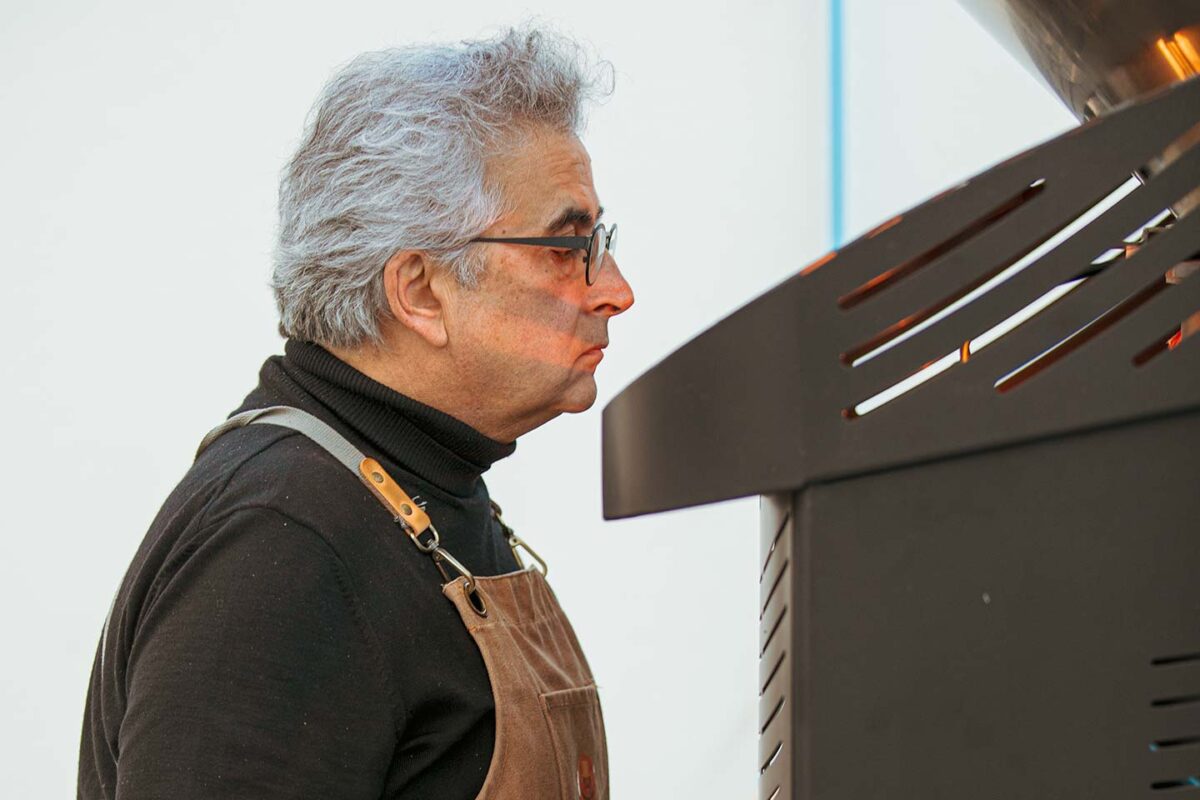
The Smoking Tiger/Antonio Tombolini/Italy
Instead of competing with someone and saying, ‘our coffee is better than others,’ we aim to be different and advertise the diversity. In other words, diversity itself can be your value and your strategy. There is no need for sales techniques or gimmicks. In specialty coffee, there are different layers of diversity, in terms of origins, varieties, and processing methods as well as roasting and brewing methods. And you also have diversity when pairing coffee with food. It’s such a diverse and astonishing world. It sparks meetings between people and spontaneous conversations, and cultivates relationships. Our message is that diversity is not something to fear, but something to celebrate.
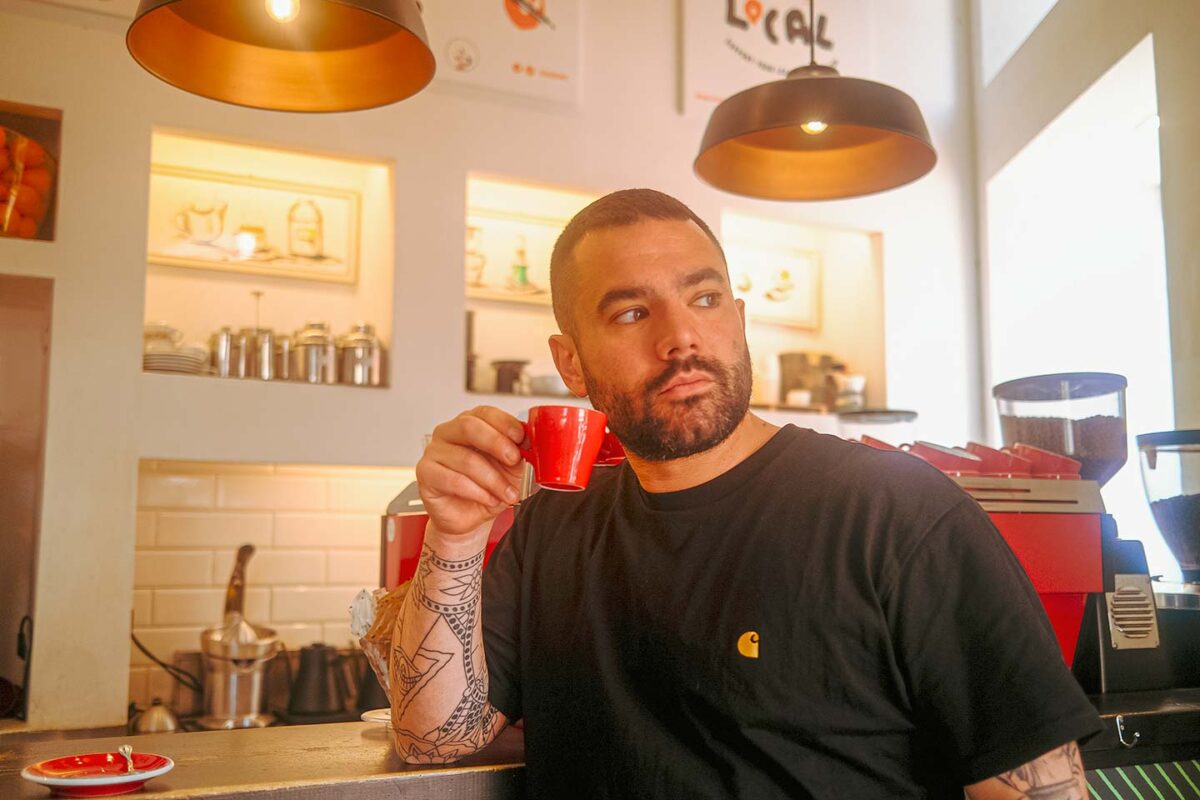
Faro – Caffè Specialty/Dario Fociani/Italy
We are always fighting against bad influences big companies leave in the fields of not just food but also music and art. When you choose something that’s made for money, it means you renounce something cultural. And that’s the same thing as giving up your own identity. If many people start to seek better things, they will be able to find more truths.
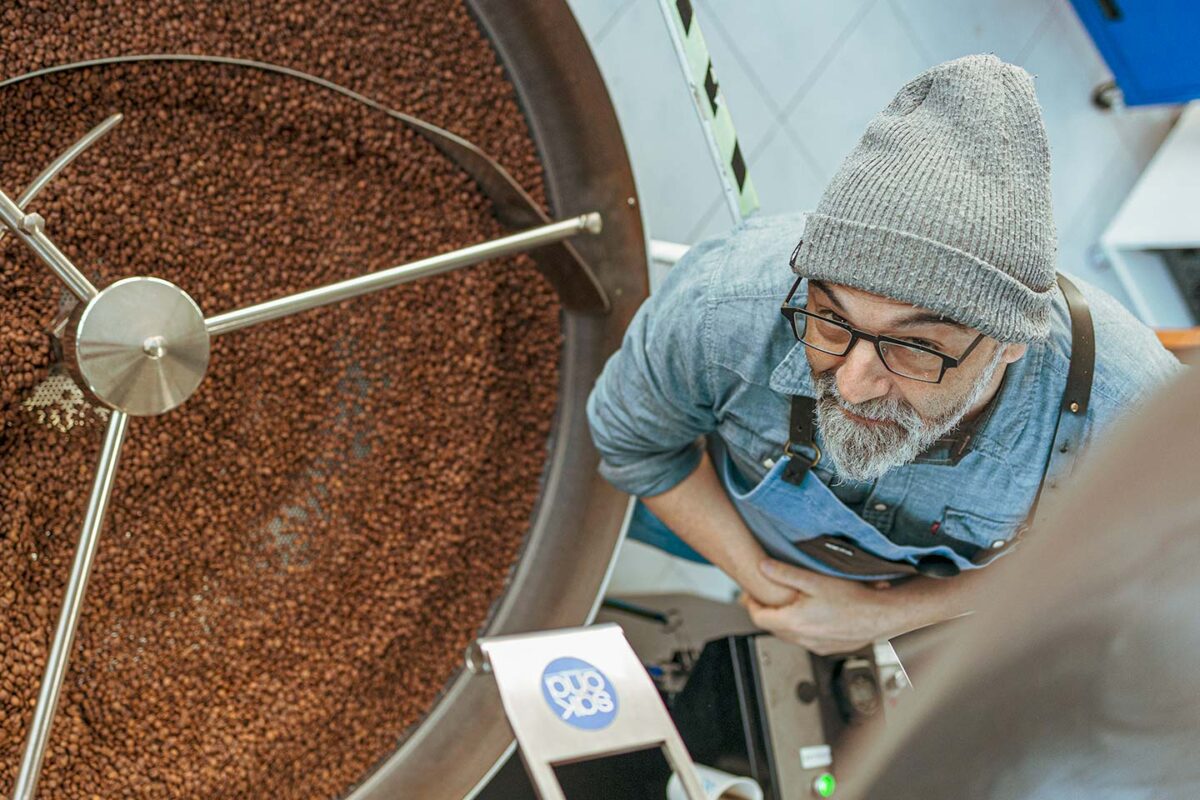
Sakona Coffee Roasters/Javier Garcia Funez/Spain
If you understand that your mission is to make people happy, the rest will follow automatically. The most important thing is the power of will. If you genuinely want people to have fun and relax, creative answers will arise naturally. It’s also important to keep accumulating tools and experiences to use in specific moments.
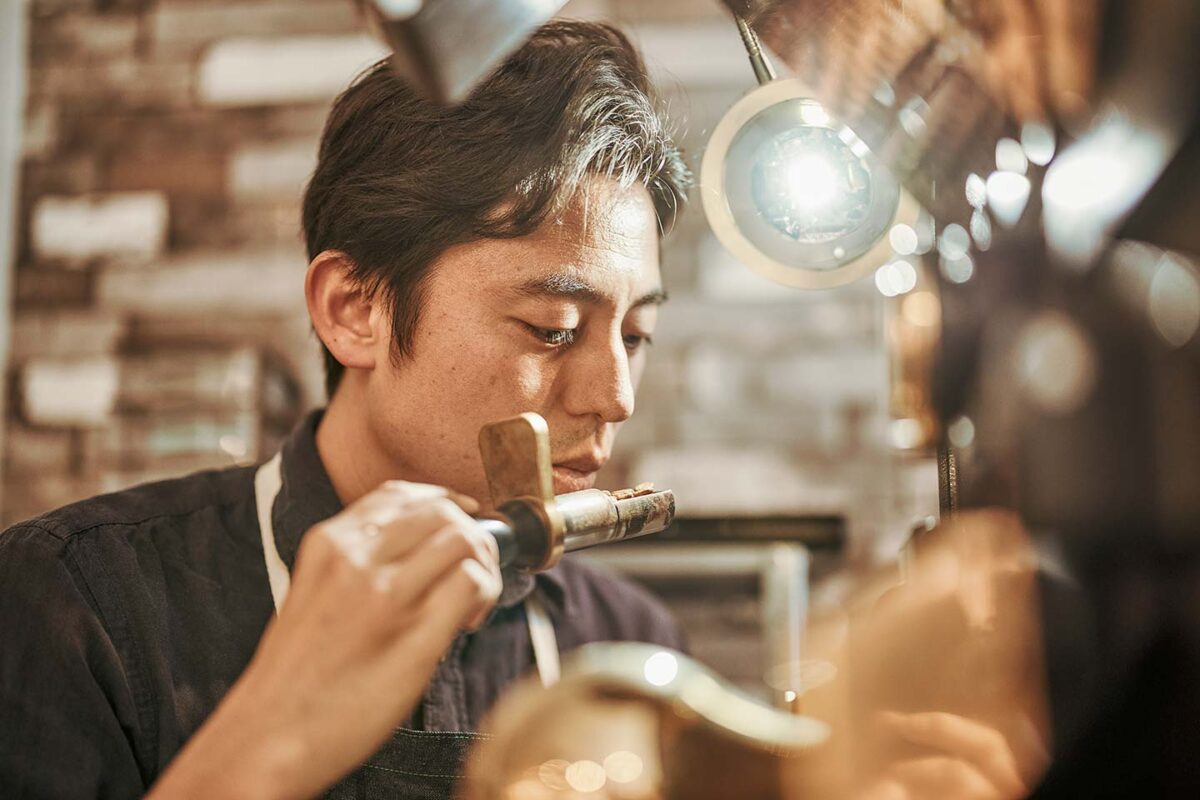
SUGIHARA COFFEE ROASTER/Daisuke Sugihara/Japan
If you want to turn your life around, then you have to make the right decisions. Otherwise you won’t be able to break free from the cycle of misfortune. I define education as the power to look into the essence of things. It’s the ability to probe into the true nature of things with a variety of knowledge. Education exists so that you don’t just believe what others say are true but instead think and judge with your own head. I think that the role of parents and adults, in general, is to provide children with the right yardstick, a means to make the right decisions.
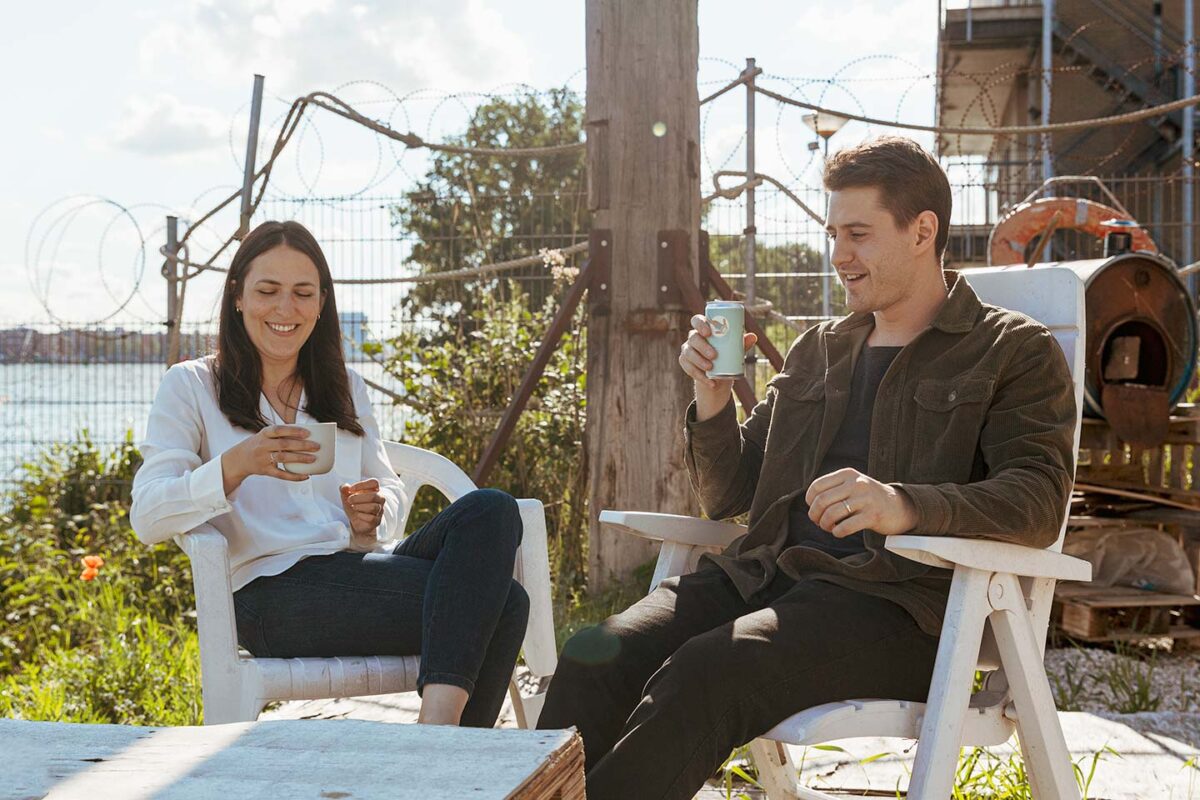
Dak Coffee Roasters/Louis-Louis-Philippe Boucher/The Netherlands
I like to go outside my comfort zone. We’ve never been afraid of going into a different language or a different culture. I don’t mind changes in my day-to-day environment because the best place for people to understand themselves and grow is outside their comfort zone. Once outside of your comfort zone, you may find it difficult for a while. You may feel you are going to lose. But over time, you’ll figure it out and it becomes fun.
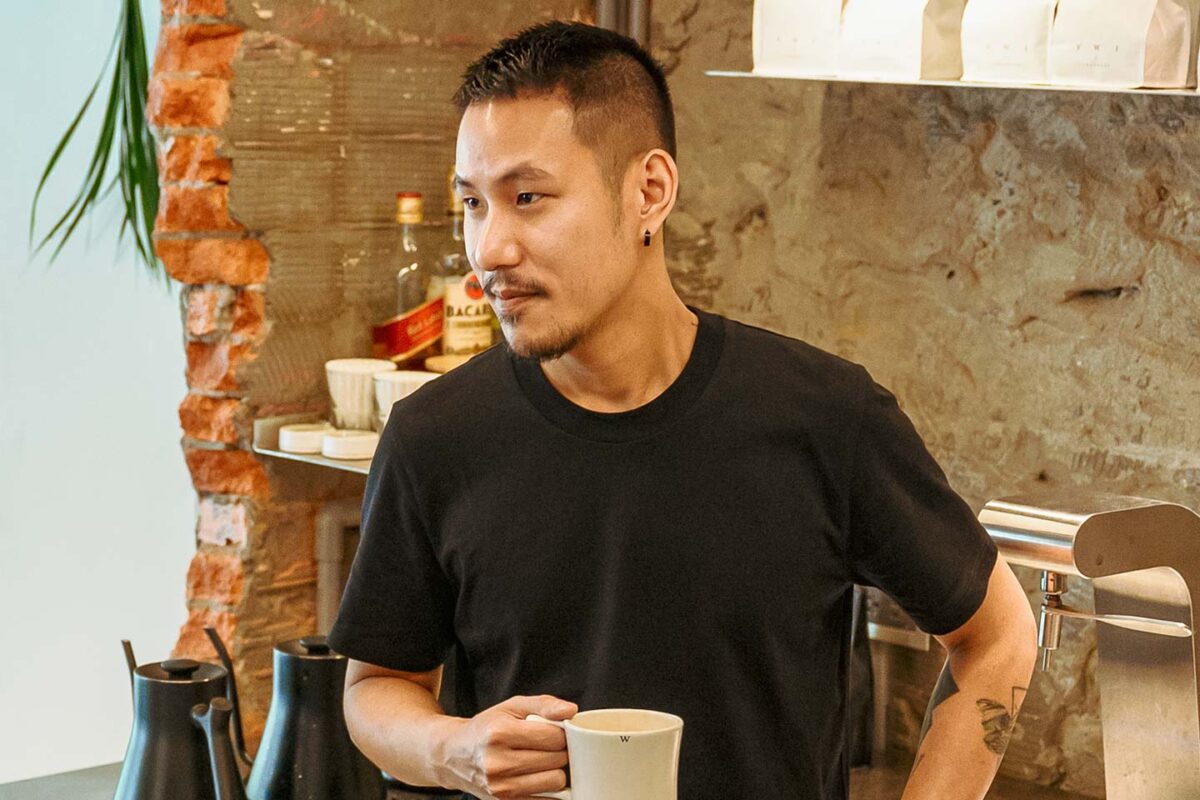
VWI by CHADWANG/Chad Wang/Taiwan
We want to convey a human touch. Baristas are the ones who welcome people coming to their cafes the same way they receive guests at their own homes. Baristas at VWI interact with customers like friends do, but their relationship is not close enough to go out for a drink together. There is a delicate balance there.

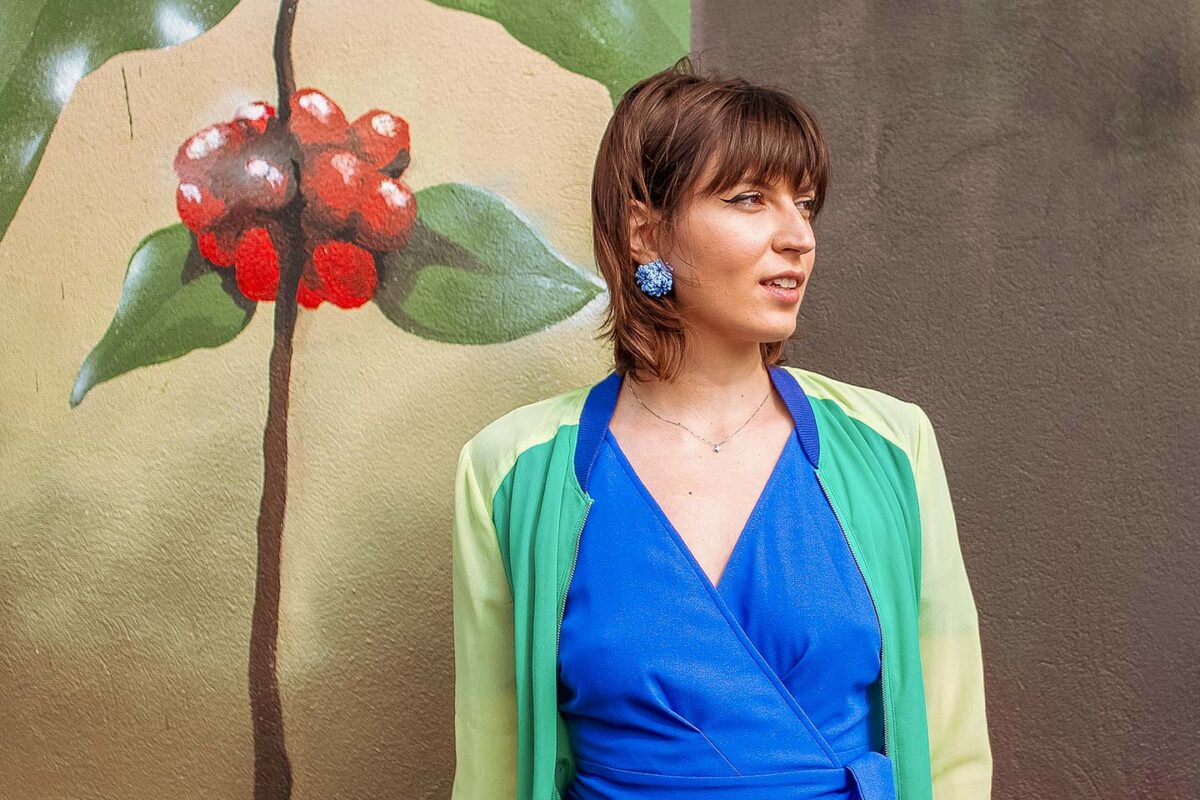
Sloane Coffee/Teodora Pitis/Romania
“Until around 2010, everyone was eager to go outside Romania in pursuit of a better world. For Romanians, everything abroad looked great when many things at home did not function well. But that’s changed in the past 10 years. As many Romanians traveled to other countries and saw for themselves what those countries actually looked like, they found out that any country has its own problems, and that the places they longed for and the people living there were no different from themselves. They realized that it is the will to do things correctly and bring change that makes a difference.”
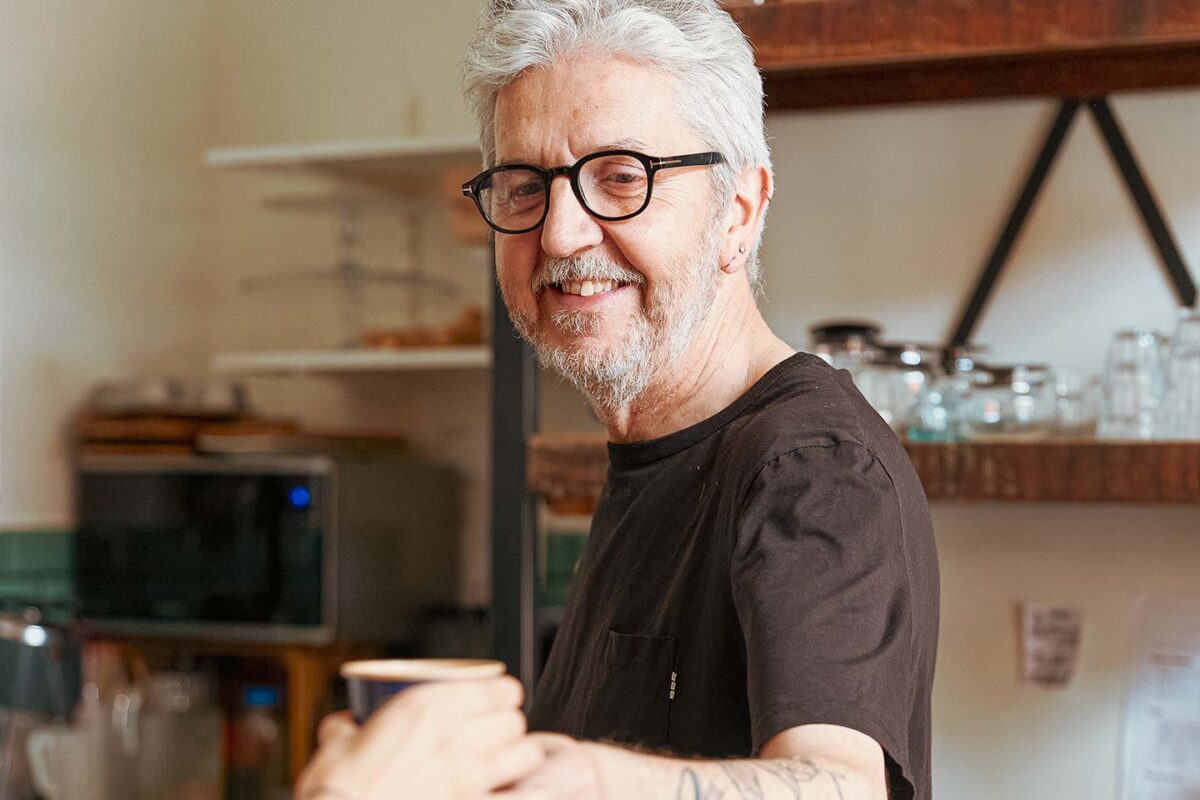
Monks Coffee Roasters/Patrick Abbot/The Netherlands
Second-wave and third-wave coffee started in Melbourne. Having watched the market there, I think everything is coming back full circle now. Even if people try to introduce a new brewing method or recipe, it always ends up as a fad. If you roast and brew coffee to your best ability based on well-established formulas, it will always turn out nicely.
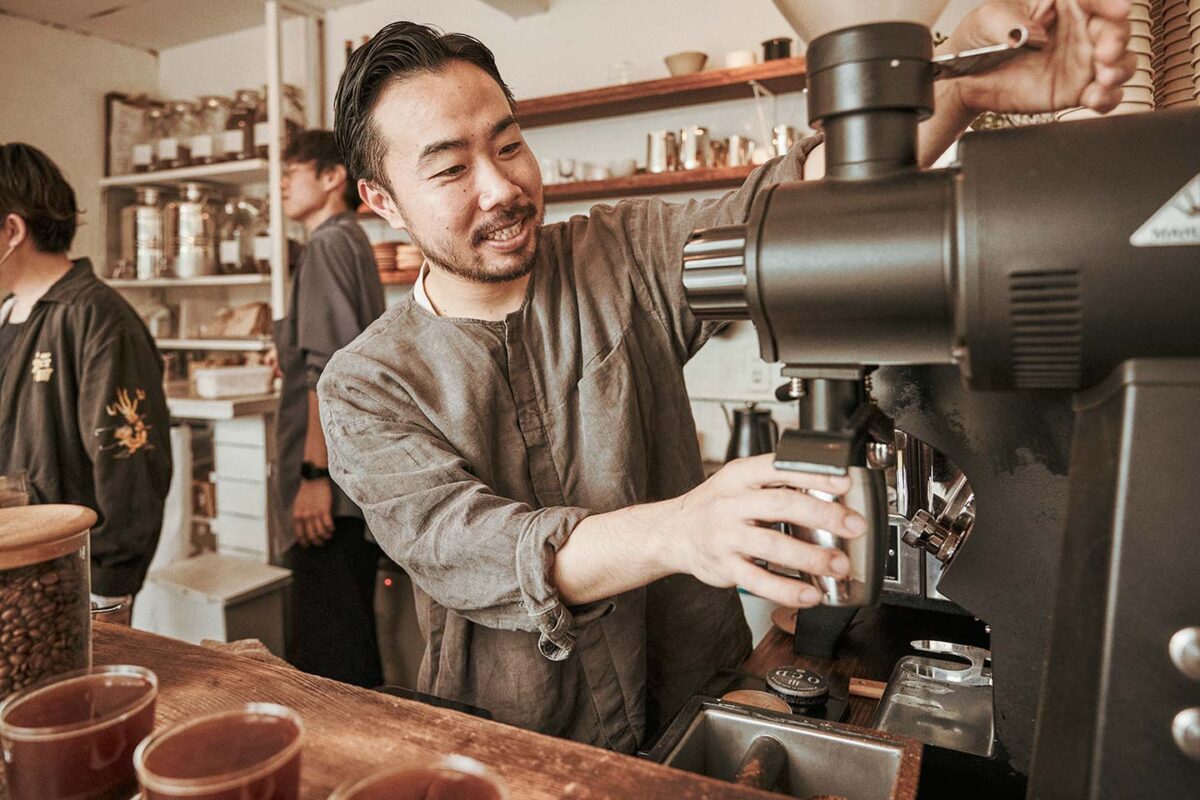
AKITO COFFEE/Akito Tanzawa/Japan
I think there is a proper time to meet the people you should meet. Something will go wrong if you impose your feelings or if you try to force someone into friendship. I believe that you will be willing to work for a long time with people with whom you share the same values and vision.
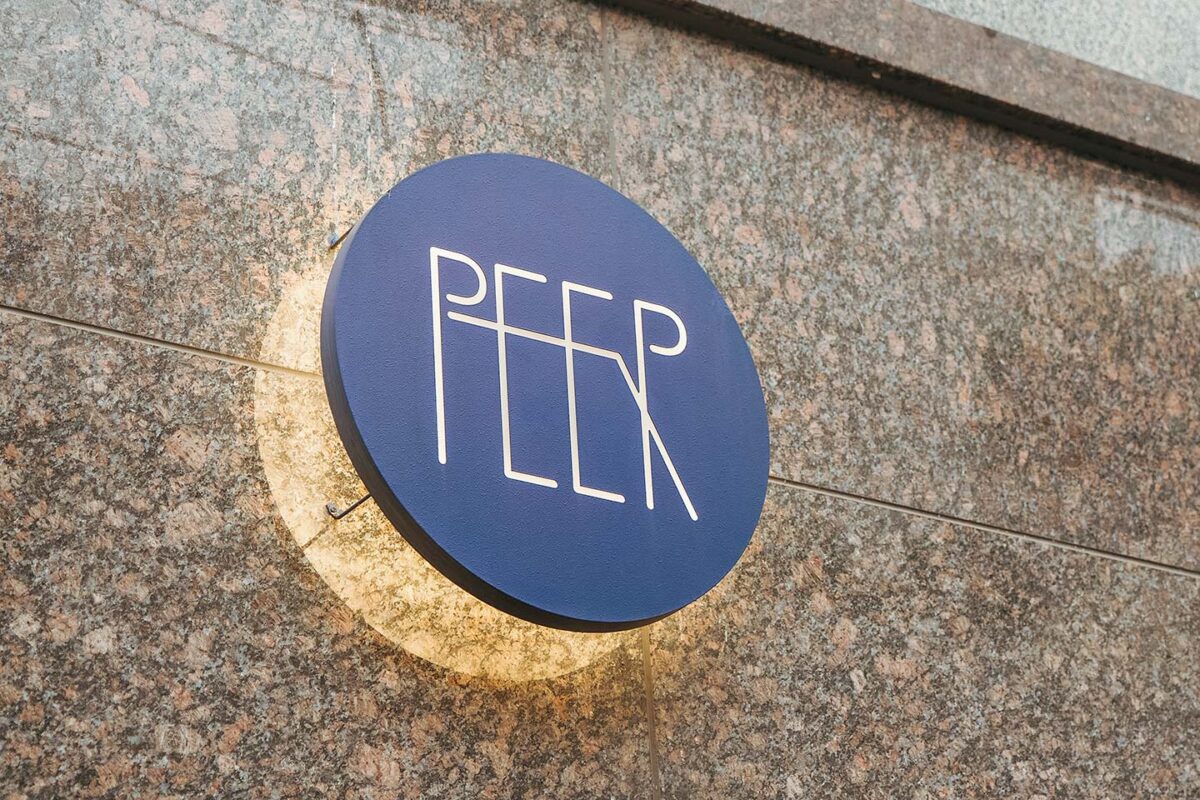
Peer Coffee/Hwang Jin Wook/South Korea
The most important thing in specialty coffee is the people. Beginning with the producer, going through the import/export company, the roaster, and the barista, finally, the customer is handed the coffee. This industry would not be possible without connections among the various people involved. Yet, we cannot think without the ‘people’ in the process.
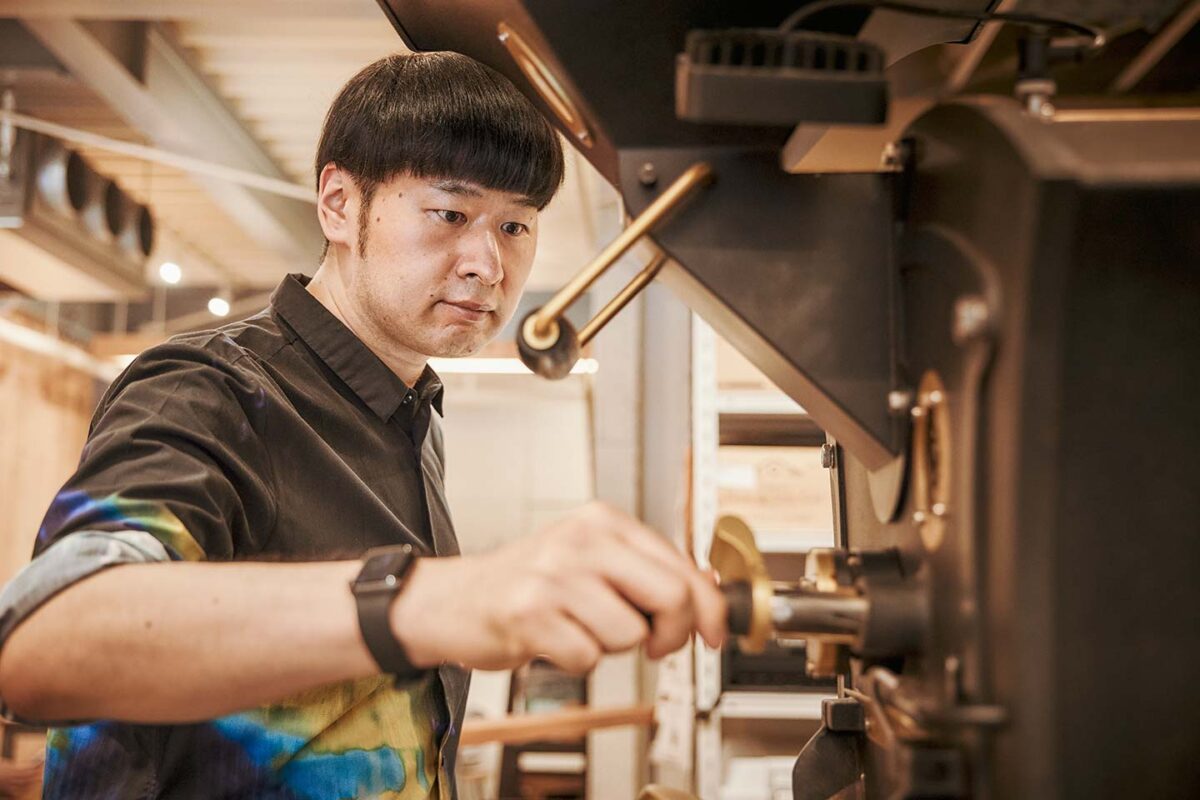
HONO roasteria/Tatsuya Murai/Japan
Some roasters believe there is a single right answer to roasting methods and theories. But that is just the right answer for that particular individual. I have to find the right answer for myself. Coffee’s tastes are influenced by various factors like environmental circumstances and beans’ conditions. It is vital to fine-tune them in each step. If you keep reaching out for an answer that way, it will come to you.
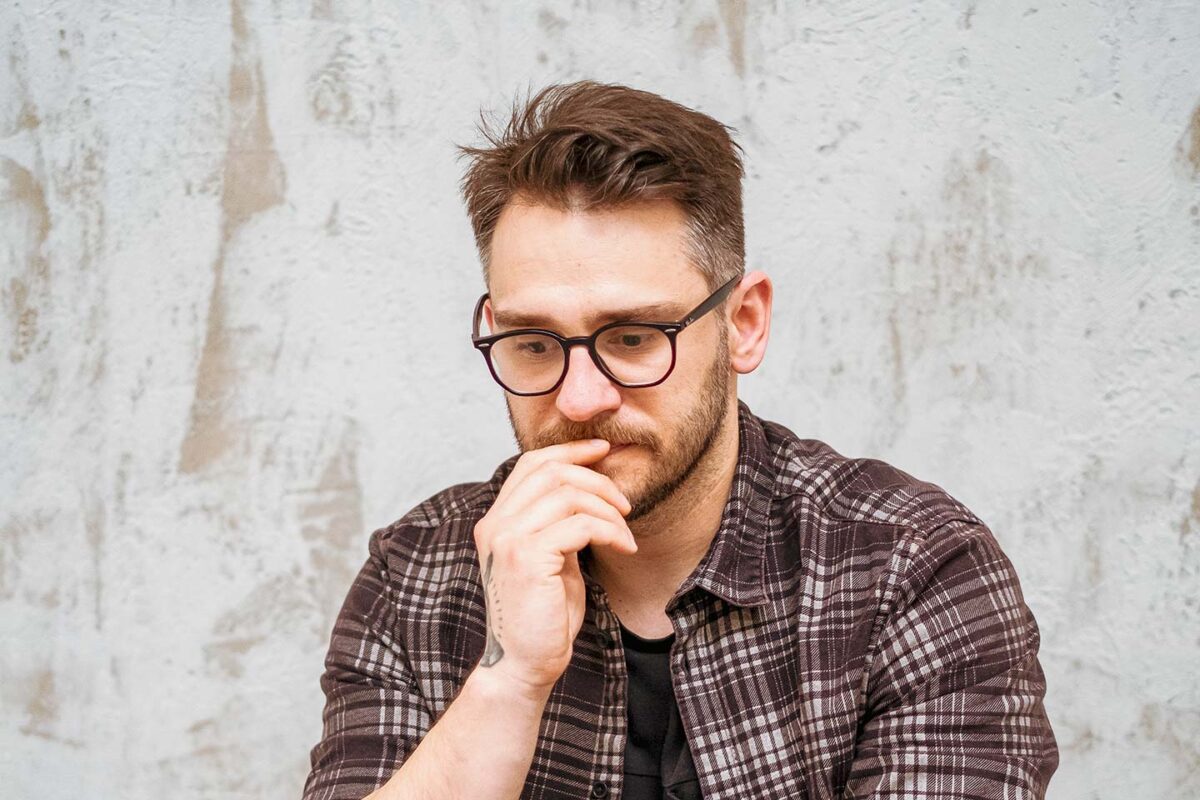
Rusty Nails Coffee Roasters/René Královič/The Czech Republic
Some people involved in specialty coffee say Starbucks is terrible. But in fact, the company funds projects to build washing stations in Rwanda to support small-holder farmers and sources most of the coffees processed there. Small roasters and large companies do not belong in two separate worlds. Rather, we are living and working alongside each other in a way.
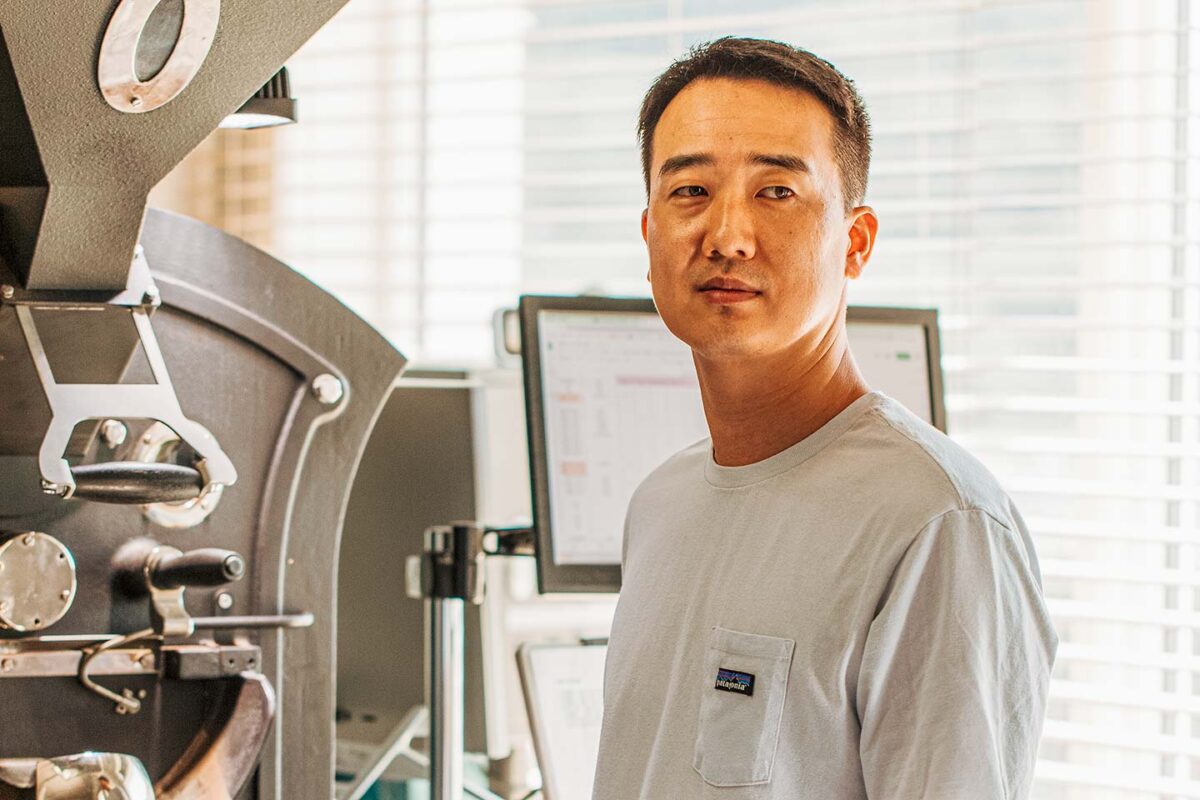
Hytte roastery/Jung Hyr jae/South Korea
I had been learning about coffee from books and places like the academy up to that point. That’s why my mind was ahead of my senses. Without tasting the coffee, I pulled knowledge out of my head and distinguished between good and bad coffees. Since we had no clear direction for ourselves, every customer’s reaction, opinion, and daily sales brought us both joy and sorrow. But that six-month trip allowed us to put aside our assumptions and prejudices.

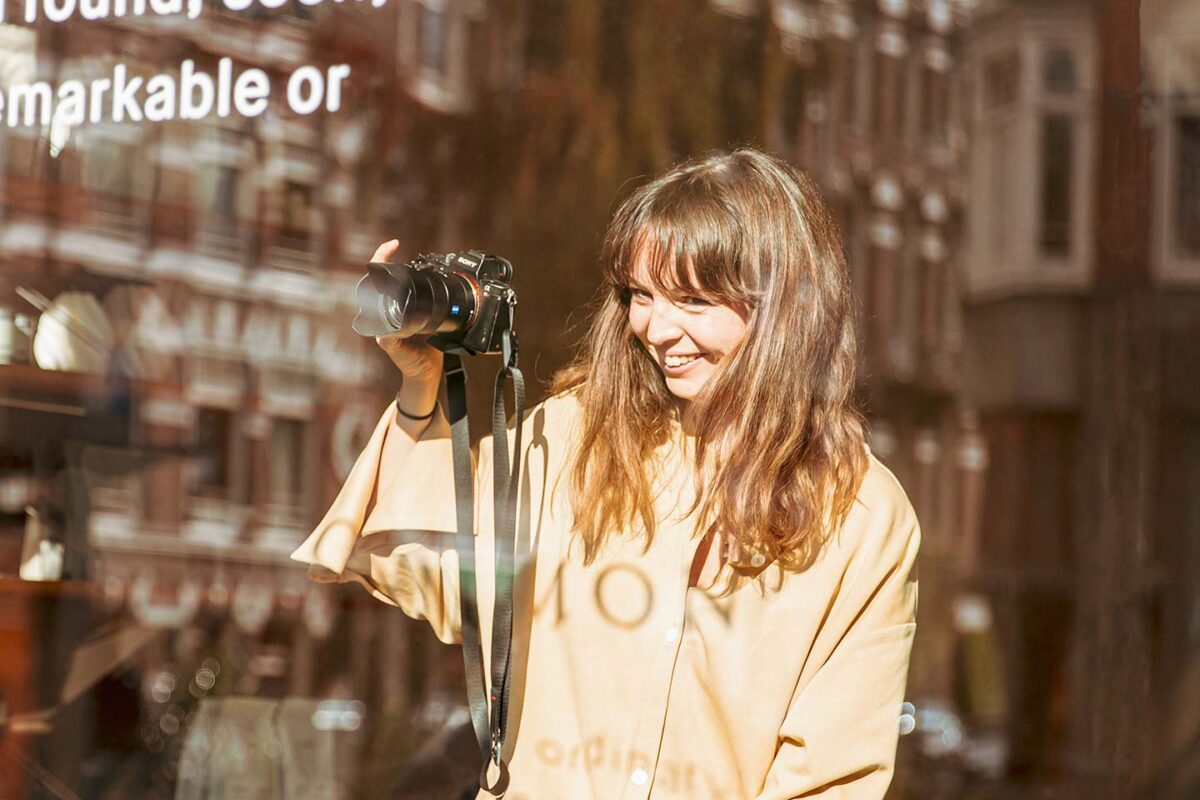
Uncommon Amsterdam/Nina Tromp/The Netherlands
I think the key to achieving sustainability is to increase consciousness. For instance, if people know that the extra few cents they pay are going to help children far away to take a swimming lesson, they see more value in the money they pay. I think that compassion and transparency will help build a healthier supply chain and create more equality in the world.
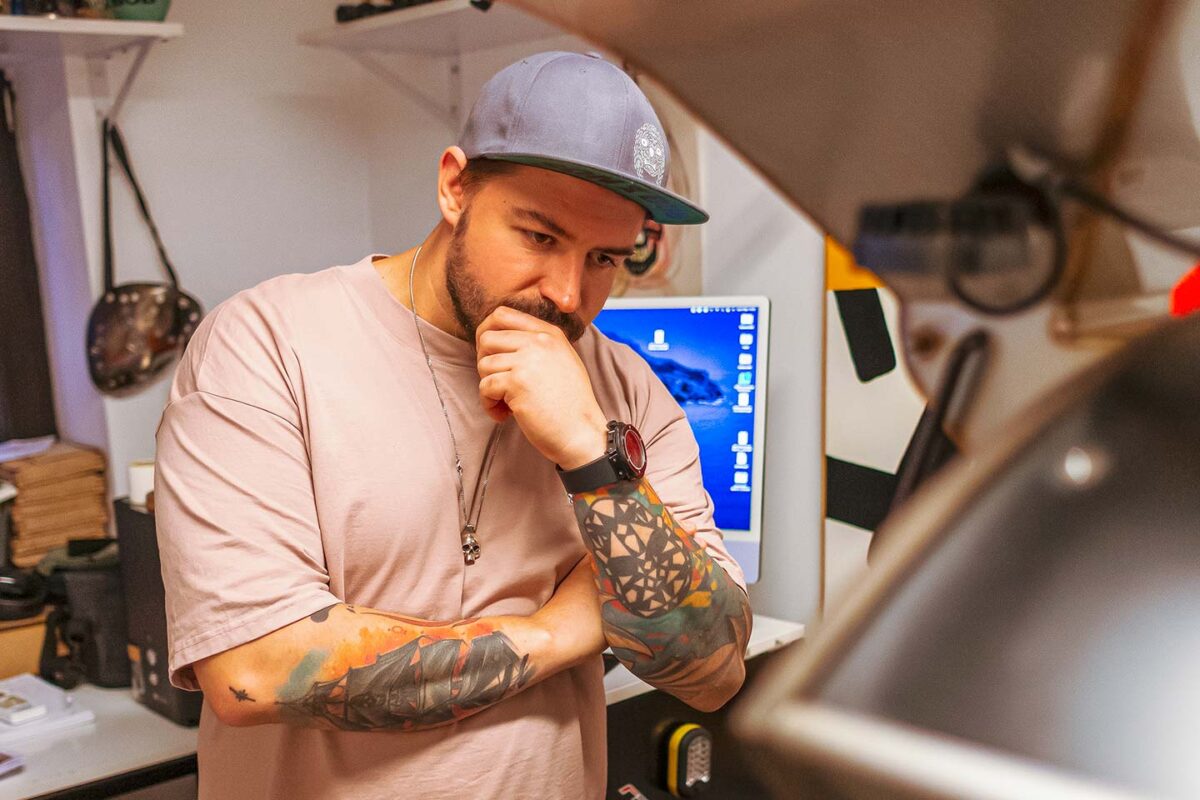
Bob Coffee Lab/Alexandru Niculae/Romania
You could say I’m on the constant hunt for treasure. You don’t know where you might find a good idea. Trying a new profile and adding to my ‘collection’ broadens my possibilities. On the other hand, if you let your past experiences or preconceptions guide your decisions, then you can’t expect to grow any further. I want to keep challenging my own boundaries so that I can evolve and improve.
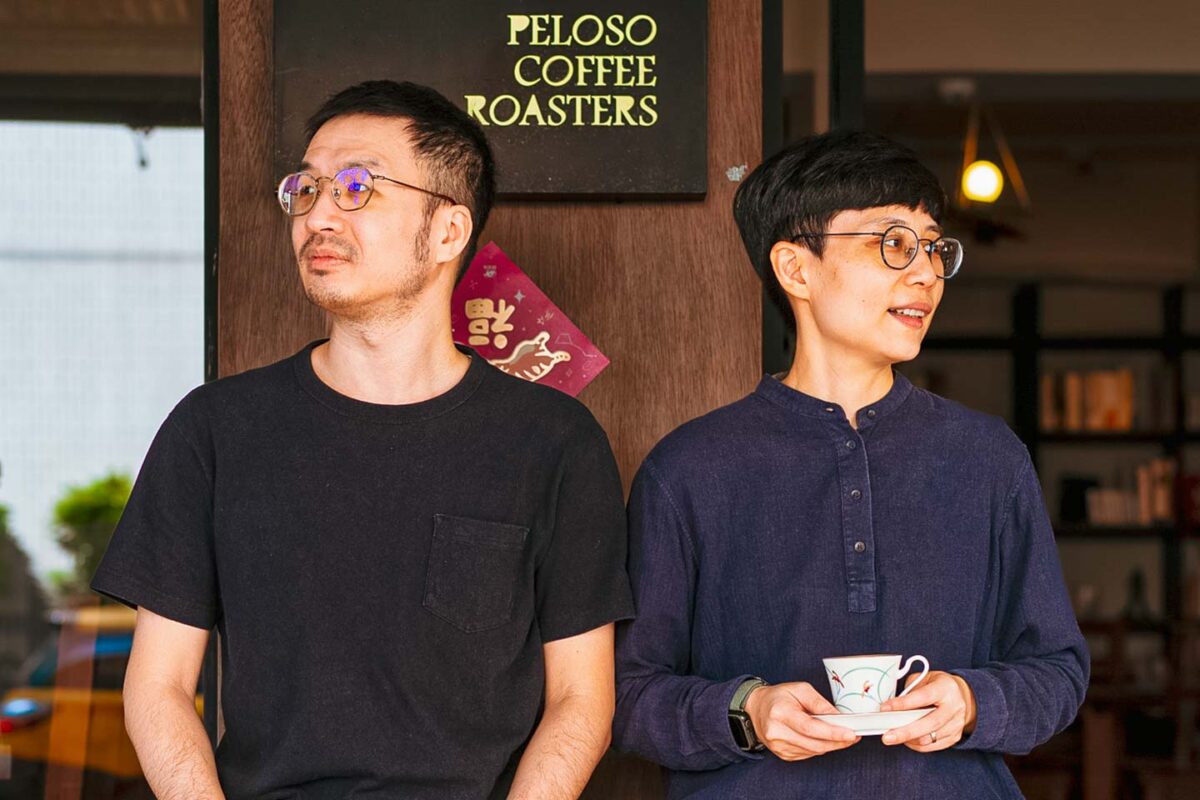
PELOSO COFFEE ROASTERY/Kankan/Taiwan
I like to think of our relationship as a cup of coffee. Coffee has both good and bad qualities, but how you see these qualities depends on the person. It’s subjective. If we share our likes and dislikes, we can learn more about coffee and take our enjoyment to a different level. It’s not healthy to lock away your negative feelings or ignore them. It’s better to put it all out there and deal with it head on. So we try to find a balance and always find time to talk about coffee.
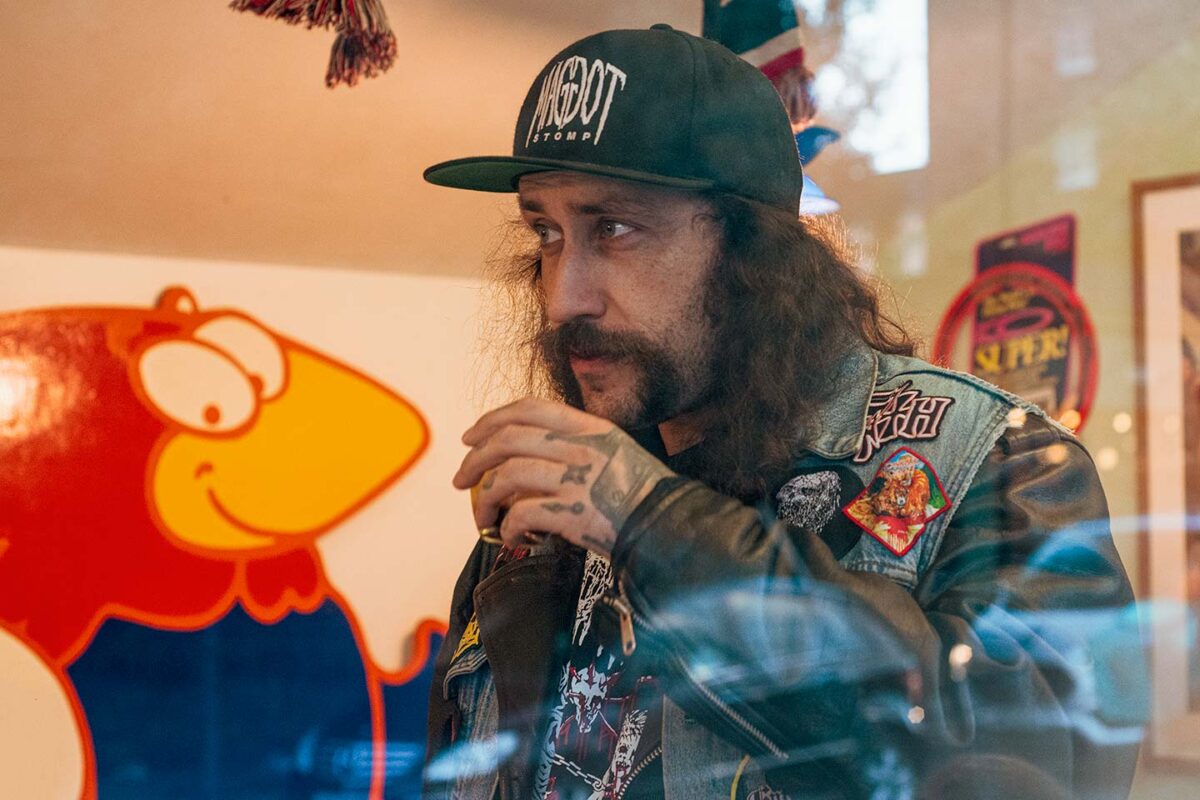
Dark Arts Coffee/Jamie Strachan/The United Kingdom
Being anti-establishment and seeking harmony can go hand in hand. If anything, it’s quite dangerous if the establishment tries to create harmony because they might try to maintain the status-quo and push a narrative that benefits them only. The same can be true for the coffee industry. If the establishment dictates which coffee origins are worth buying from and which ones are not, you’ll end up with some neglected origins. So if being anti-establishment means buying from those undervalued origins, then it’s the same thing as creating harmony in the industry.
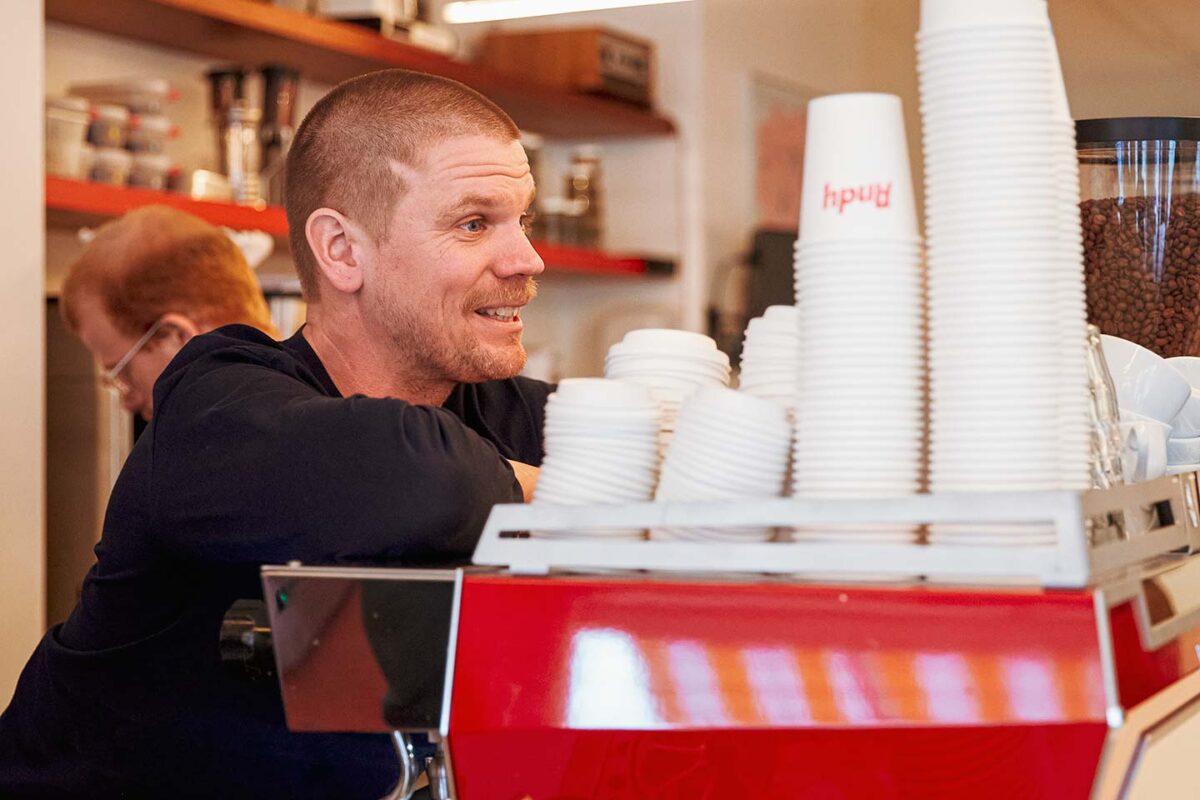
Andy Roasters/Dave Haessen/Belgium
I definitely had and I still always have doubts. But the older you get and the more pieces of the puzzle fall into place, the more confidence you have in the direction you choose. I consider myself a person always willing to say yes and give things a go. You could say I’m a ‘yes man’ in that sense. I think a lot of decisions in my life are not pre-decided. They’re not pre-thought. I like to follow my path and see the positive things, and somehow it got me into this position, a position I never thought or dreamed I would be in.
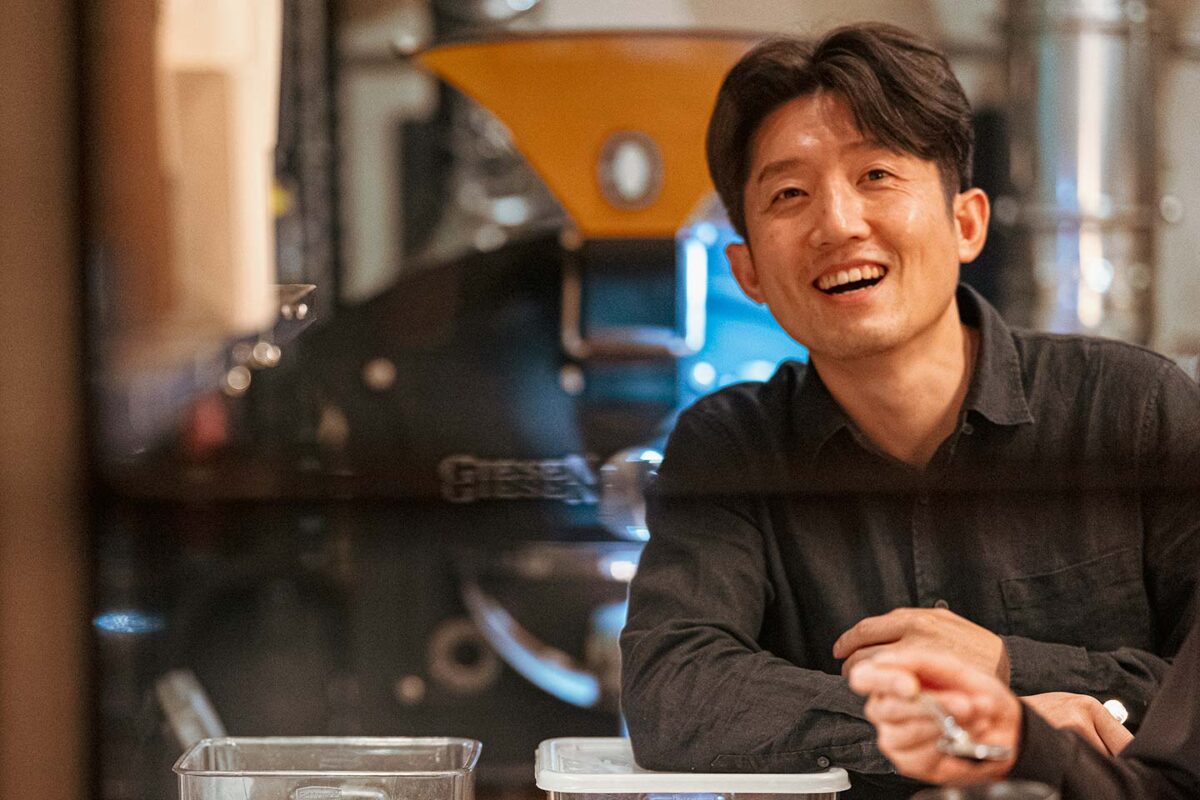
Strut Coffee/Ku Minwook/South Korea
At Strut Coffee, I want people to see the beauty and joy in everyday things, even something as commonplace as a cup of coffee, or a pencil. Like drinking a plain glass of water from a well-crafted glass – you can discover moments of happiness in the smallest of things.Happiness doesn’t have to be dramatic. It can come from anything. That’s why improving the quality of everyday items is so important to me. I want to make sure these things are visible and not hidden.
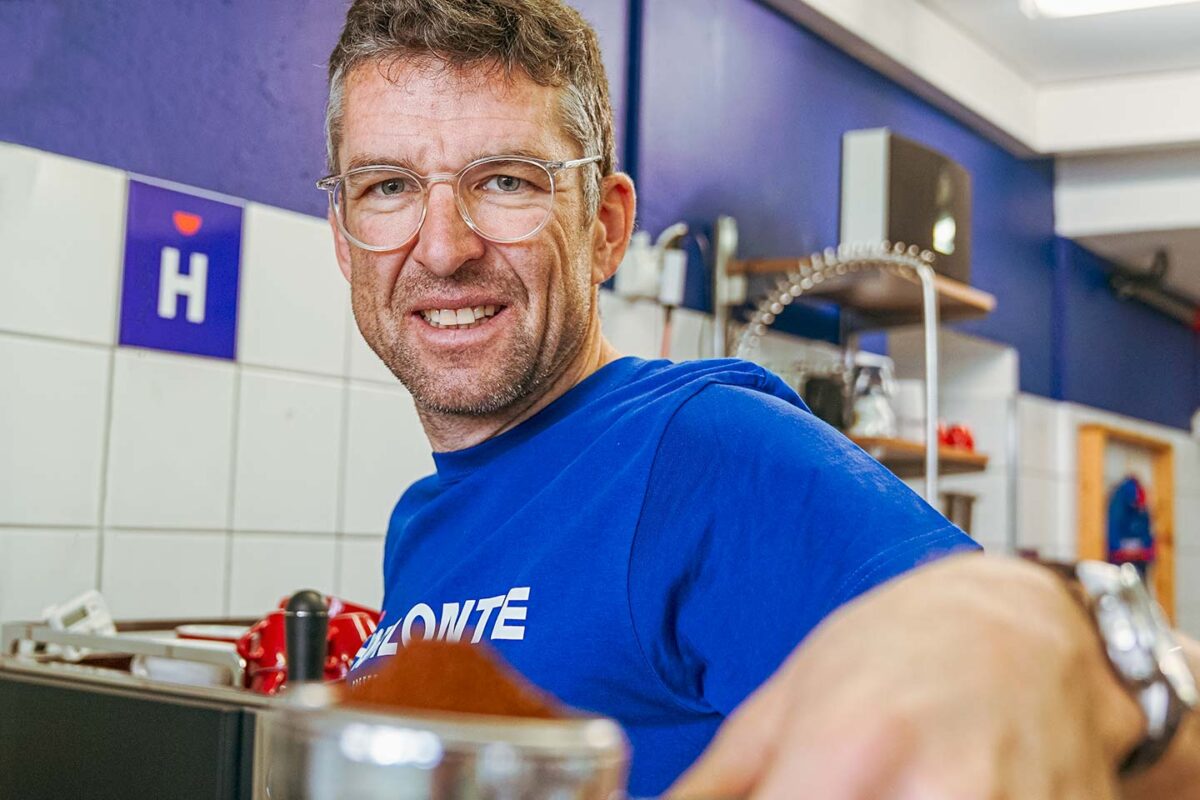
HORIZONTE COFFEE ROASTERS/Christoph Sauser/Switzerland
If you work hard to get things, you try to hold on to them. And the things you earn with hard work are worth so much more than the things you get for free. It’s this effort that gives you the power to persevere and persist through hardship. To me, this shows that giving everything isn’t always beneficial when you consider the person’s long-term growth.
